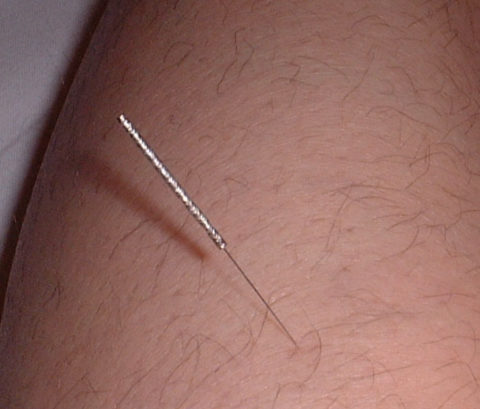
Will this increase red and white blood cells and T-cells? I don’t think so!
One of my fans sent me a clipping from a community newsletter, Colorado Serenity, with an article by acupuncturist Christina Fick, who calls herself a doctor. The title is “Give Your Immune System Some Love!” It is full of pseudoscientific advice about the things that harm and help the immune system. My correspondent thought it was “a cornucopia of questionable medical advice and treatments, including her own proprietary mushroom medley, which is bad enough.” But what really concerned him was the claim that acupuncture increases your red and white blood cell counts, along with your T-cell counts. He searched the Internet and found a few supporting articles about red and white blood cells; but none were from a reputable medical source, and he was unable to find any mention of T-cells.
My own review of the evidence
I did my own search online, consulting sources like PubMed and Google Scholar.
This study by a Turkish author in a Korean acupuncture journal discussed acupuncture and autoimmune diseases. The language is too garbled to make any sense out of it. Example: “What we said? Autoimmun diseases’ starting places are spesific and same all of them. And all of them is starting from mesodermal layer. This is a detail that we noticed and highligtened.”
An article in US Pharmacist asked “Does Acupuncture Have a Role in Managing Chemotherapy-Induced Leukopenia?” It was a systematic review but the authors characterized it as “preliminary” and “hypothesis-generating.”
Many acupuncture websites claim that acupuncture improves immunity, for instance:
acupuncture is commonly used for post chemotherapy cancer patients to help alleviate side effects of chemo such as anemia (low red blood cell count), leukopenia (low white blood cell count). Multiple studies have shown that Acupuncture in form of Electro-acupuncture and/or acupuncture with Moxa increase leukocytes (White blood cells) and may improve immunity.
Note: oncology websites that discuss treatment of chemotherapy-induced neutropenia do not mention acupuncture.
A 2013 systematic review found that acupuncture was an effective adjunct for chemotherapy-induced nausea and vomiting but found that efficacy for other symptoms was undetermined due to high risk of bias in the studies.
Many of the supporting studies were in animals. One found that helper T cells derived from the bone marrow were activated via the sympathetic nervous system stimulated by acupuncture – in mice!
A 2015 study found that bee venom acupuncture(!) alleviates experimental autoimmune encephalomyelitis by upregulating regulatory T-cells.
Who is Christina Fick?
She bills herself as “one of the top acupuncturists’s [sic] in the nation.” After suffering from Lyme disease she studied acupuncture to learn how it had helped her. She runs Evergreen Medical Acupuncture in Evergreen, Colorado, with two other acupuncturists. They offer a number of questionable “holistic” and “functional medicine” treatments including electric dry needling, cupping, kinesio taping, cosmetic acupuncture, and fertility acupuncture. They treat “chronic Lyme disease”. Their store sells Fick’s Orvience line of overpriced supplements, vitamins, detox, nootropics, superfoods, luxury soaps, and skin products.
Conclusion: The evidence that acupuncture increases red and white blood cells and T-cells is far from convincing
I had to agree with my correspondent. It is possible to find studies that support those claims, but they are scattershot, often in animals rather than humans, are from unreliable sources, and are obviously biased in favor of acupuncture. Even if it can be established that acupuncture has those effects on blood tests, that doesn’t necessarily mean it will have clinically significant effects on health outcomes in humans. Fick’s article recommends all sorts of things that she says will boost your immune system or impair it, from margarine and sugar (bad) to vitamins, supplements, mushrooms, 60 ounces of water a day, apple cider vinegar, and steam showers (all good). Her advice is mere speculation and opinion. Since it is not based on credible scientific evidence, it can be disregarded.
This article was originally published in the Science-Based Medicine Blog.
